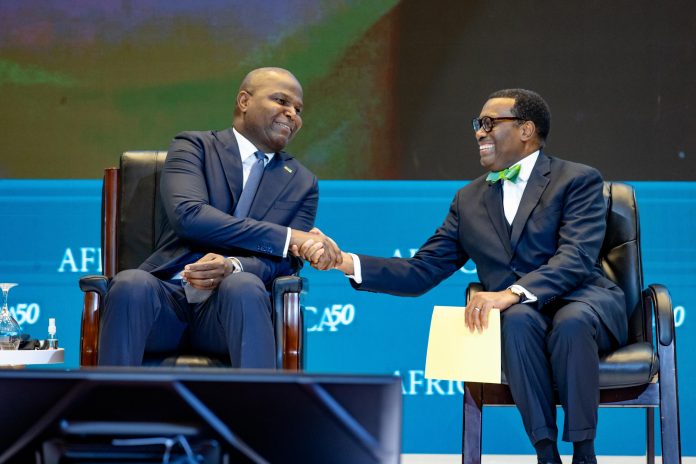Africa50 has taken a decisive step in the continent’s green infrastructure push, securing $118 million in first-close financing for its Alliance for Green Infrastructure in Africa – Project Development Fund (AGIA-PD). The facility, announced during the Africa50 General Shareholders Meeting (GSM) in Maputo on August 14th, is designed to tackle one of Africa’s biggest infrastructure hurdles: the shortage of bankable climate-resilient projects.
AGIA-PD aims to raise $400 million in total, with the ambition of mobilising up to $10 billion in private capital for transformative projects across renewable energy, clean transport, water, and ICT. Unlike many climate finance initiatives that wait for projects to mature, AGIA-PD is structured to intervene at the riskiest stage—funding feasibility studies, structuring, and permitting, which often derail African infrastructure deals before they reach financial close.
Anchoring the first round was the African Development Bank (AfDB), which committed $40 million in a mix of grants, junior equity, and commercial capital through its Sustainable Energy Fund for Africa. AfDB Vice-President Solomon Quaynor framed the move as a calculated willingness to absorb early-stage risk: “This is more than capital. It is a declaration that we will share early-stage risk to unlock Africa’s green infrastructure pipeline.”
Other backers include Germany’s development bank KfW, the West African Development Bank (BOAD), the UK’s Foreign, Commonwealth & Development Office (FCDO), the Soros Economic Development Fund, and the Three Cairns Group via the African Climate Foundation. Their combined support reflects growing international confidence in African-led financing platforms.
Read also: Africa’s green finance window widens as sustainability-linked loans gain global credibility
Africa50 Chief Executive Alain Ebobissé cast the close as proof that AGIA, launched at COP27, is now shifting from vision to execution. “Since its inception in Sharm El-Sheikh, AGIA has moved from ambition to delivery. This milestone demonstrates investor confidence and marks a decisive step in building a robust portfolio of bankable green projects,” he said.
The urgency is clear. Africa faces an annual infrastructure deficit of between $130 billion and $170 billion, while climate shocks; floods, droughts, and extreme heat, intensify across the continent. However, fewer than one in ten infrastructure projects in Africa reaches financial close, most stalling at the feasibility stage. AGIA-PD’s blended finance model, where grants and junior equity absorb the riskiest exposures, is designed to overcome that bottleneck by manufacturing bankability rather than waiting for it.
The Maputo meeting underscored that ambition with a broader suite of announcements. Africa50 signed a project development agreement with Mozambique’s national utility, EDM, to build three high-voltage transmission lines spanning nearly 800 kilometres. Another landmark deal with the African Continental Free Trade Area (AfCFTA) Secretariat will establish a digital system to streamline customs and border management, while a partnership with Mozambique’s Ministry of Communication and Digital Transformation will deliver a new data centre in Maputo, boosting the country’s digital backbone.
For Mozambique, host of the gathering, the initiatives align with President Daniel Francisco Chapo’s drive to leverage the country’s energy potential, including solar, hydro, and natural gas, to power both domestic industrialisation and regional growth.
The event also spotlighted the growing role of Africa50 as a convener of capital and expertise. AfDB President and Africa50 Chair Dr. Akinwumi Adesina invoked the baobab tree as a metaphor for collective resilience, urging African governments and global partners to “join hands around the baobab of infrastructure opportunities.”
Read also: SADC ministers meet in Antananarivo to fast-track integration and energy transition
With Tanzania confirmed as host of the 2026 GSM, attention now turns to whether the momentum from Maputo can translate into tangible assets on the ground. For Africa50 and its partners, the stakes are high: every dollar of early-stage funding is expected to leverage between $10 and $20 in follow-on capital. If realised, the $118 million already secured could unlock more than $1 billion worth of climate-resilient infrastructure.
The success of AGIA-PD will ultimately be measured not in pledges but in power plants, ports, and digital platforms that drive Africa’s low-carbon transition. The Maputo agreements may be remembered as the moment when Africa’s climate finance narrative began to shift—from promises to delivery, from ambition to infrastructure that transforms lives.







